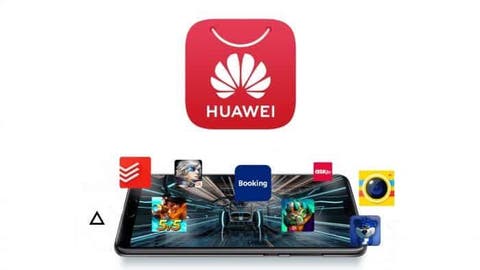Previously, Huawei launched the AppGallery app store for Huawei and Honor smartphones as a replacement for the Google Play Store. At the end of December, the Huawei AppGallery store became available on PC. According to the latest information, which was published on the Chinese social network Weibo, Huawei will launch the PC version of its Huawei browser and a set of proprietary services Huawei Mobile Services (HMS) Core.
Huawei is actively working not only to improve the hardware, but also the software. Features such as multi-screen collaboration and screen projection have been praised by users using Huawei smartphones and laptops.
Huawei AppGallery for PC is expected to simplify app installation and help the company create its own market for apps on the PC platform. In addition, Huawei AppGallery will keep Huawei smartphones, laptops and desktops running smoothly.
Sources also say that future Huawei laptops will be equipped with Multi-screen Collaboration 3.0 technology. This new version will offer enhanced features and a better user experience.
Huawei will share its Android replacement OS with other smartphone makers
Huawei may well share its proprietary replacement for Android OS, the HarmonyOS 2.0 operating system, with other smartphone manufacturers.
The director of Huawei Consumer Business Group, Yu ChengDong, better known in the world as Richard Yu, spoke about this.
Huawei could help the Chinese smartphone manufacturers use the HarmonyOS operating system and services that have already performed well as a replacement for GMS.
The top manager made this announcement in case Chinese manufacturers are unable to obtain a license to use the Google Mobile Service (GMS) and Google Play Store on their smartphones.
The company is already testing HarmonyOS 2.0 on smartphones with selected developers and partners.
Huawei is preparing a laptop based on Kirin 990 and running Deepin OS 20
Huawei will release a new laptop called Huawei Qingyun L410, equipped with a Kirin SoC, early next year, sources say.
Now, photos of the packaging of this laptop have appeared on the network, which confirms the key characteristics of the device. The laptop will be based on the Kirin 990 SoC, it will receive a 14-inch 2K screen, 8 GB of RAM and 512 GB of memory, presumably on a solid state drive.
The Huawei Qingyun L410 laptop runs Deepin OS 20, which is one of the most beautiful Linux distribution. The device should have support for fifth-generation mobile networks thanks to the Kirin 990 SoC. The source adds that in the future, the laptop may be updated to the Harmony OS operating system.
Initially, the laptop should appear in the Chinese market, and then, perhaps, reach users in other countries of the world.
HARMONY OS 2.0 MOBILE DEVELOPER BETA MAIN FEATURES
- Brand new mobile phone UI controls, adding 50+ UI controls for developers to develop mobile HarmonyOS applications. It also unifies the UI interaction experience of multiple devices.
- The HarmonyOS application framework supports mobile phones and rapid migration. It also supports swift connection and circulation. There is a no-installation loading of HarmonyOS applications on multiple devices.
- Provides Windows and Mac platform development and compilation toolchain experience. This is also convenient for developers to quickly develop HarmonyOS applications.
- Provides 40+ Sample Codes for mobile developers. This is convenient for developers to quickly understand and adapt to HarmonyOS interfaces and development methods.
- Distributed capability interfaces such as multi-modal perception support multiple usage scenarios.
- Also offers a standard input method framework and capabilities
- Provide standardized telephone system interface capabilities.
- Also uses a barrier-free development framework
- Provides standardized distributed data management capabilities. Developers can also call standardized distributed DB interfaces to realize real-time data synchronization between devices.
- Enhance the account system capabilities. It also includes accountless devices into the HarmonyOS system.
Follow Gizchina.com on Google News for news and updates in the technology sector.
